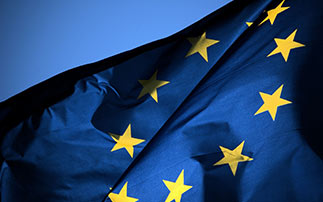In our current pursuit to improve policies and practices to strengthen equality in all parts of our society, it is more then ever necessary to establish an environment in which women and men can equally perform. But efforts are to be made as studies still deplore that European women remain underrepresented in the EU labour market.
While more women than men graduate from University (in 2017, 45% of European women had completed tertiary education against 35% of men) they still do not get the same job opportunities (67% of women in employment versus 79% of men in 2017). More specifically, if we focus on EU research, women accounted for 47% of PhD graduates in 2016, but made up only 33% of researchers and 21% of top-level researchers (grade A).
An employment gender gap that naturally has enormous consequences for the EU’s competitiveness as the economic loss is estimated to 370 billion euro per year. According to the European Institute for Gender Equality, improving gender equality would lead to an increase in EU (GDP) per capita by 6.1 to 9.6% by 2050, exports could be boosted by 0.7%, while imports to decrease by 1.2%.
Corrective actions allowing to employ more women, reducing pay gaps or improve decision-making should be a complement “Gender Mainstreaming” (Integrating Gender Analysis into Research Content or Curricula for R&D). An issue which was recently highlighted by the European Court of Auditors (ECA), currently working on a report on gender mainstreaming in the EU budget.
The non-inclusion of gender in budgetary aspect has consequences also for EU funding programmes: the ECA shows for example that programmes initially targeted at employment and social matters have been used to fight against gender discrimination, while it was not their main objective.
As the EU also aims to be the leading continent in terms of innovation and intends to keep its position as the first global market, gender equality improvements could help its competitiveness and make the difference with other giants as the US or China.
What about SMEs?
If SMEs represent the biggest employment sector in Europe, women represent less than 30% of EU entrepreneurs, a share that remained static over the last decade.
Several factors can explain the under-exploitation of women’s entrepreneurial potential, which are both economic and societal.
Among others, because of gender stereotypes and unconscious bias, women are less oriented toward digital matters in their carriers, but are also less present Science, Technology, Engineering and Mathematics (STEM) sectors, impacting both their performance and presence as business leaders.
Access to funding seems to be another main economic barrier to women entrepreneurship. SME women leaders tend to “prefer” (or be granted) safer ways to finance their company than highly competitive grants or loans, which leads to lower investment levels than in male-led SMEs.
At the EU level, if we take the example of EU’s SME instrument only 15% of the selected projects were coordinated by women between 2014 and 2017. On the contrary, more women are involved in projects involving the ESF fund, and targeting employment and social economy.
The European Research Council (ERC) shows that women and men are equally successful in high quality research: female-submitted projects have the same success rate as those submitted by men (13%). However, they apply a lot less which makes the rate drop to 30% of women-led applicants.
What are the answers brought by EU programmes?
As tools for ensuring the implementation of EU policies, funding programmes also have a role to play! Currently, several call for project are open under the SWAfS programme, among which Innovators of the future: bridging the gender gap, which will invest 2.5 million euro in developing entrepreneurial competences and inspire the next generation of innovators.
The Gender-NET Plus ERA-NET, is a good example of funded-project who promotes women in the field of R&D. Based on the United Nations’ sustainable development goals, the ERA-Net launched a call for proposals in 2017, for 3-year european projects dealing with gender issues.
The annual prize for Women innovators is also open until April 21st! This prize is awarded to women who founded a successful company and brought innovation to market in the EU9. The goal of this prize is also to create role models for women and girls, to inspire them to follow their footsteps. A broader implementation and communication about these prizes could be good for the EU to address societal images of successful business and female entrepreneurs.
As consultations for Horizon Europe’s draft were open, several research and organizations advised the EU to include gender-responsible rules for participation to show a real improvement in the number of participants and projects leaders.
If there is a great deal of expectation surrounding Horizon Europe, another step forward could be to include gender as a cross-cutting issue in all EU funding programs, increasing visibility in success stories of female entrepreneurs and broaden communication on funding opportunities.
Julie Bouquin & Jeanne Collin


